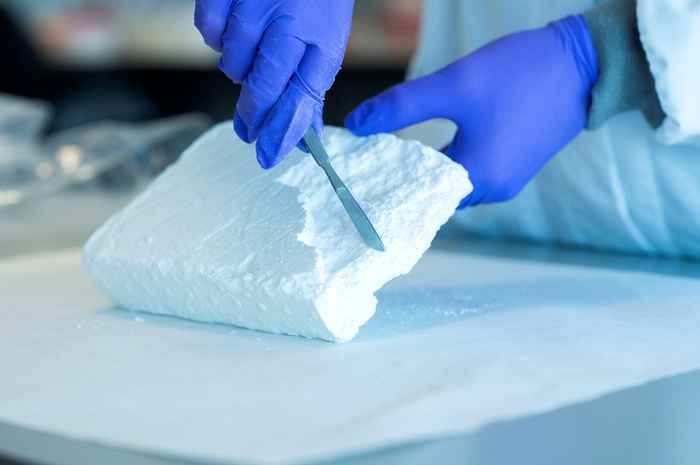Automatic detection of hidden chemical information in drug samples is going to help The Netherlands in the fight against drug crime
21 March 2023

The Netherlands is internationally known as a major drug-producing and exporting country. The port of Rotterdam is one of the most important transit hubs for drugs worldwide (especially cocaine), and a large part of the synthetic drugs that come onto the global market (especially speed and XTC) are produced in our country. Every year, the Dutch Police, the Netherlands Forensic Institute, and the Customs Laboratory jointly analyse around 25,000 seized powders and pills for the presence of hard or soft drugs. In that primary process, a lot of valuable information that could be used in the fight against organized drug crime in the Netherlands remains unused, according to the researchers of the new FIDBID (Forensic Illicit Drug intelligence through Big and Intelligent analysis of chemical and criminological Data) consortium.
Chemical fingerprint
The chemical analysis of such samples not only provides information about the possible presence of drugs of abuse. In addition to the main psychoactive ingredients, drug mixtures often contain adulterants, functional additives, and various impurities. Together they form a characteristic chemical fingerprint of the material under investigation. Previous research by the UvA, Dutch Forensic Institute and Dutch police had shown that a lot can be deduced from this fingerprint about the raw materials used and the production and transport processes. Such a chemical profile can also be used to investigate relationships between confiscated materials. Due to the large number of samples that have to be analysed annually and the pressure to quickly report the presence of List 1 (hard drugs) and List 2 (soft drugs) substances, the Dutch drug analysis laboratories often do not get around to exploring this hidden treasure of forensic intelligence.
Automation
‘We want to change that,’ says Arian van Asten, professor of forensic analytical chemistry at the University of Amsterdam (UvA) and project leader of FIDBID. ‘Within FIDBID, we will work with forensic chemical experts, criminologists, and data scientists to identify which relevant chemical data are present but not used yet, and what can be deduced from these data with regard to the production and transport chains of illicit drugs. There is a strong link with the daily practice: three PhD students will conduct a large part of their research together with and at the Dutch Forensic Institute and the national police. Subsequently, with the help of Capgemini, we will develop a system that can extract this information from the chemical data generated in the forensic laboratories in a fully automated manner. This will provide law enforcement and policymakers with a valuable new toolbox to quickly and effectively tackle subversive drug-related crime in the Netherlands.”
Funding and partners
The new consortium is financed with a grant of more than 1 million euros from the NWO program ‘Subversive Crime’. It also closely collaborates with the Netherlands Forensic Institute, the Dutch Police, Dutch Customs, and Capgemini. The partners within FIDBID are, in addition to the UvA's Van 't Hoff Institute for Molecular Science, the UvA’s Informatics Institute, the VU University Amsterdam, the Amsterdam University of Applied Sciences, and the Dutch Police Academy. In addition, this project involves direct collaboration with the Dutch Public Prosecution Office, the Ministry of Justice and Security, and various international institutes and top experts from Europe and the United States.